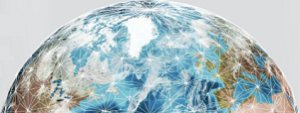
Internet access should be a human right
It is indicating a survey done in Canada and in 24 countries, with 23,376 respondents who indicated that access the internet is key to economic future, important for the freedom of political expression, for it should be a human right.
internet is key to economic future, important for the freedom of political expression, for it should be a human right.
The survey was conducted by Ipsos Institute for GCIG (Global Commission on Internet Governance), and presented at the beginning of a two-day meeting in Ottawa on governance on the Internet.
The World Commission on Internet Governance, the main host of the Ottawa conference, revealed that the world is on a path of struggle for power and many groups and governments have an interest in maintaining influence on all aspects of internet.
But the study of this committee argues that most people do not want any nation or organization in control of the world wide web and therefore a matter of planetary citizenship, and the problem is who should regulate access and use the internet.
The idea is that a group formed by a combination of specialists, engineers and non-governmental groups, is chosen by 57% of those who would be entrusted with this task, but 50% thought that the United Nations could carry out this work and there are still 36% that argue that the United States should take the lead in this area.
The survey was conducted from October 7 to November 12 in the countries: South Africa, Germany, Australia, Brazil, Canada, China, South Korea, Egypt, France, Hong Kong, India, Indonesia, Italy, Japan, Mexico, Nigeria, Pakistan, Poland, Kenya, UK, Switzerland, Tunisia and Turkey.
.
The CGIg which is chaired by diplomat and former politician Carl Bildt Swiss, shall submit its final report for future governance of the Internet in 2016.









